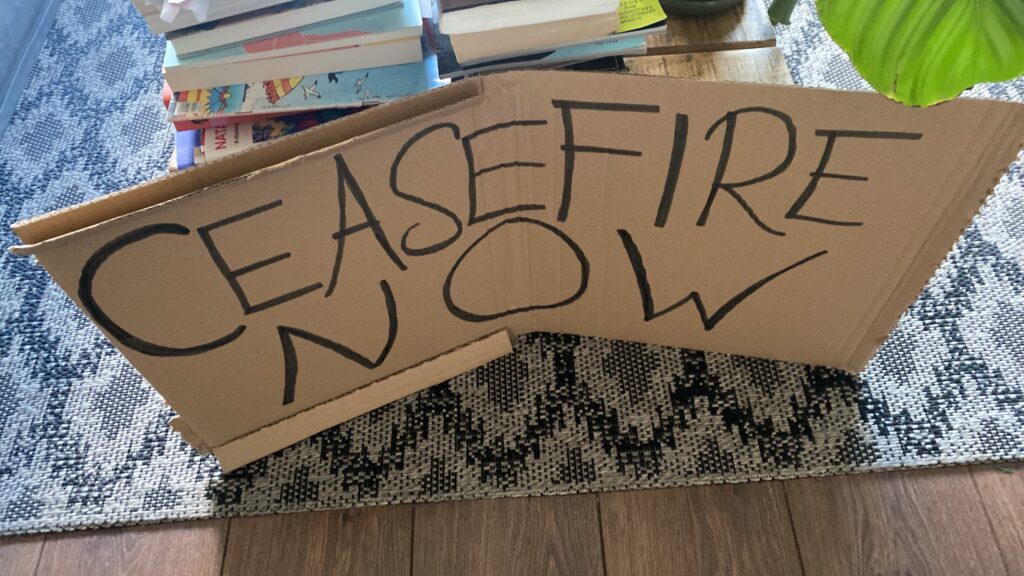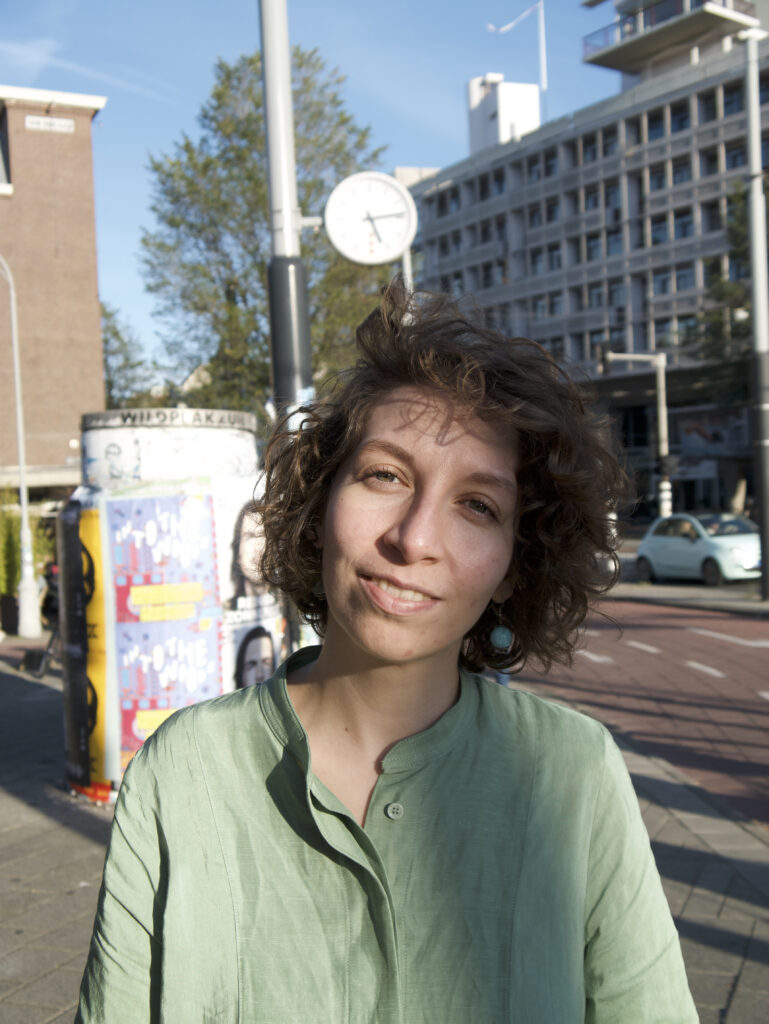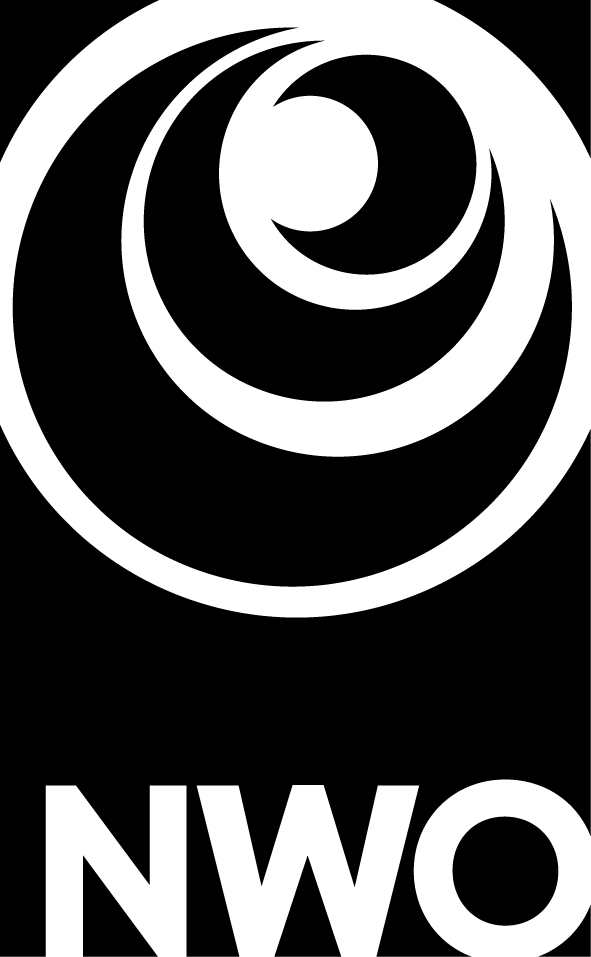Blog
Autumn
My second, and longer, research trip brought me to Berlin on 8 October, a day after the horrific Hamas massacres in Israel and at the start of the IDF’s relentless bombing campaign on Gaza. Impossible to think about much else since or to write about my project here as if it existed in a vacuum.

I don’t hold a romanticising view of what literature and its study do to bring about change in the world. Neither can replace practical forms of political action. Yet I wouldn’t be pursuing this project if I wasn’t convinced of their political nature, or of authors’ possibilities to express stances and activate others through and beyond their art.
One writer consistently committed to political activism is Arundhati Roy, whose work has been of central importance for my previous research on literature after national partition. On 15 November Roy was supposed to open the Literaturfest Munich, but couldn’t leave India due to sedition charges against her. When she joined the festival for a panel discussion via video call the next day, she also read out a short statement on the “unconscionable slaughter of civilians” in Israel and Palestine. In it, she advocates for a political rather than a militaristic solution, one that is based on an end to the bombing as well as an end to the occupation of the West Bank and to the siege of Gaza. “So please –“, it concludes, “for the sake of Palestine and Israel, for the sake of the living and in the name of the dead, for the sake of the hostages being held by Hamas and the Palestinians in Israel’s prisons – for the sake of all of humanity – cease fire now.”
As I write this blog post back in Amsterdam, a short truce has come and gone. The relief about each hostage and detainee who could return to their loved ones stands beside the despair about every precious life lost every single day the bombing continues. I still don’t have any better words than sharing in the plea for a lasting ceasefire, nor better actions than putting it on a sign and asking for the Dutch government to echo it.
Roy’s statement, though, addressed a German public in particular. Right at its beginning, she expresses her concern over views like hers being “virtually banned” there. While her words were met with applause in Munich and have not been subjected to scandalising media coverage since, it would be cynical to dismiss these context-specific worries. There may be no general ban on expressing solidarity with Palestinians, but the German cultural scene is producing an ever-increasing number of quite literal cancellations (of events, of contracts) in accordance with ever-shifting criteria.
These moving goalposts are exemplified in the latest news updates around Palestinian author Adania Shibli. After the Frankfurt Book Fair’s and German media’s discriminatory treatment of Shibli had caused an international outcry in October, a Hamburg court just ruled in favour of the newspaper that misrepresented her as an “engaged activist” in the BDS (Boycott, Divestment, Sanctions) movement. One piece of evidence the court cites is her signature under a 2019 open letter in solidarity with British-Pakistani author Kamila Shamsie, who first won and then lost the Nelly-Sachs-Prize on the basis of her support for a cultural boycott of Israel, which has been modelled on that of South Africa and requested by Palestinian civil society. (In the same year the German federal parliament had passed a motion to label the argumentation patterns and methods promoted by BDS antisemitic. This motion and its far-reaching consequences for cutting off international exchange have been criticised by leading cultural institutions. While any antisemitic statements made in association with boycott calls must be as sharply criticised as those anywhere else, the scholars of Holocaust History, Jewish Studies and Middle East Studies co-signing the Jerusalem Declaration on Antisemitism hold it that “Boycott, divestment and sanctions are commonplace, non-violent forms of political protest against states” which are not to be regarded as antisemitic “in and of themselves” in the Israeli case.) Last week’s court ruling on Shibli’s secondary links to BDS mark a further escalation of official German discourse on the subject. It should disturb anyone, irrespective of their stance on boycotts or counter-boycotts of boycotters.
The solidarity letter for Shamsie which Shibli signed happens to feature Roy’s name, too – arbitrary luck then that she has not been singled out over it in Germany so far. It also lists signatures of many white authors much less likely to be of interest to journalists or to otherwise irrelevant bloggers who enthusiastically dedicate their time to digging through racialised artists’ online history in order to find evidence for their necessary exclusion.
Just a day after the court decision in Hamburg, the city of Bochum suspended the award of yet another literary prize based on precisely such reporting. The blog behind it, infamous for cheering for the complete eradication of Gaza in 2018, had also initiated the reproaches against Shamsie. Now one of their writers found this year’s Peter-Weiss-Prize winner Sharon Dodua Otoo in a pledge by Artists for Palestine UK to “accept neither professional invitations to Israel, nor funding, from any institutions linked to its government until it complies with international law and universal principles of human rights.”
The German blog goes on to quote a number of celebratory Facebook posts they allege to have been posted by this group after 7 October, holding Otoo accountable for them and insinuating her support for Hamas. The Facebook page from which they are quoting is unaffiliated to Artists for Palestine UK, which has another Facebook page very clearly linked to the website that featured Otoo’s signature. The latter Facebook account posted the following on 10 October: “Artists for Palestine UK responds with horror and sadness to the violent loss of life across Palestine/Israel, that continues as we write. We mourn every death. And we redouble our commitment to fighting for justice, respect and dignity for all people.”
Bochum politicians clearly did not find it necessary to question the “evidence” of a dubious blog with a racist track record. Instead, they were quick to announce their commitment to withhold the prize from her “should the allegations prove true” without as much as consulting or informing the jury of literary experts. The author then took the decision in her own hands and bowed out of the prize altogether, clarifying that she has changed her position on the cultural boycott since adding her name in 2015 and now prioritises the desire for exchange. She suggests donating the prize money of 15,000€ to a team of Palestinian-German and Jewish German education activists who facilitate conversations in schools. It is a disgrace that government officials deemed it more pressing to respond to the blog than to verify its claims or show a minimum of respect and first hear the author and those who chose her as a worthy winner to follow in Peter Weiss’ footsteps.
Otoo, a Londoner by birth and Berliner by choice, was among the first writers I approached about the possibility of future interviews when planning this second research project on authorship in Germany and Britain. There is no doubt in my mind that her capacious work is worthy of every recognition coming its way. There would still be no doubt about it if she hadn’t changed her 2015 position on a cultural boycott, which is shared by many politically engaged artists around the globe and certainly in the UK. It appears that each and every one of them runs the risk of serious defamation in Germany if a blogger wills it so, with no care to be expected from the cities or institutions that previously sought to associate themselves precisely with their politically engaged art. Showing solidarity in the face of such treatment is an all the more crucial responsibility. If doing just that should now be enough to disqualify oneself from German discourse, there is little hope for the continuation of much cultural or academic work that seriously seeks to think about the Bundesrepublik beyond its borders.
Otoo’s own response statement centres the absolute necessity of being loudly in solidarity against antisemitism right now, which I want to emphasise here, too. In the weeks I spent in the German capital, Jewish Berliner’s front doors were marked with Stars of David and a Molotov cocktail was thrown at a synagogue. It is unbearable that the Jewish community in Germany – and elsewhere – has to face such attacks in addition to the grief and trauma of 7 October. As Otoo writes, those of us who are not affected must do much more to hold space for people sharing this grief without qualification or expectation, to open spaces for mutual empathy and solidarity. Zooming in on literary scene again, it cannot be accepted as a normal state of affairs that Jewish writers require security measures for public speaking engagements. Nor can it stand that their public readings are depicted as unsolvable security risks and cancelled, like that of Deborah Feldman this coming Sunday. It is surely up to all of us organising such events to allocate the funding and effort to facilitate safety together and to make room for many different Jewish voices.
One reason for my Berlin visit was the presentation of our jury decision for the Kurt-Tucholsky-Prize, which we awarded to Alexander Estis, not least for the impressively wide range of his writing styles, genres and subjects. In his acceptance speech he mentioned the focus of antisemitism in his current articles that he wishes wasn’t necessary (“The antisemite”, as he recently wrote, “doesn’t have to think about the Jew, but he wants to. The Jew doesn’t want to think about the antisemite, but he has to.”) This deep tiredness of having to talk about one’s own discrimination is one that resonates with the words of many Black authors, authors of colour, Muslim authors, Palestinian authors. The differently exclusionary structures of antisemitism, islamophobia, racism, and anti-Black and anti-Palestinian racism in particular, reach into every aspect of the German as well as the British cultural sphere, too. It is my firm conviction that they can only be overcome together.
In an open letter from and to the UK and Irish publishing scene, writers like Nikesh Shukla, Chimene Suleyman and Yara Rodrigues Fowler ask publishing houses to position themselves behind the call for a ceasefire, to work against both antisemitism and islamophobia in the industry, stand against the marginalisation of Palestinian voices and commit to a safe and supportive working environment for Palestinian and Jewish authors, illustrators and translators. It is far too easy for me to imagine the reactions, especially in Germany, that would declare these demands mutually exclusive. They are not and we cannot let ourselves be convinced that they are. For the sake of all humanity, as Roy says. But first and foremost for the sake of those trapped in Gaza – as civilians and as hostages – who need a ceasefire and who need it now. For the sake of Mosab Abu Taha, the poet detained and beaten by the IDF two weeks ago, who is now free and safe in Egypt but fearing for the lives of his parents, siblings, nieces and nephews. For the sake of Hiba Abu Nada, the poet and novelist who was killed in an airstrike on 20 October. For the sake of the living and in the name of the dead, ceasefire now.


